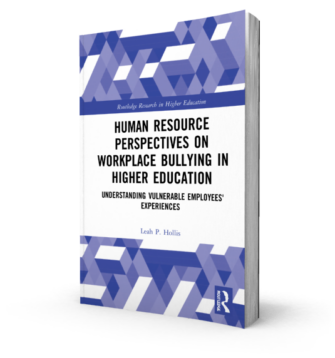Where Can You Run To?
Where Can You Run To?
Where Can You Run To?
The other day, I was chatting with a mentee about her career path. She was weighing heavy questions: attacks on higher education, shifting government policies, finances, tariffs, and the daily reality of being a parent. That’s a lot to carry — and it made me pause and reflect on my own 30+ year career.
I’ve worked at two state-related universities, a medium private university, a state university, a for-profit institution, and an HBCU. Like many of us, I was searching for that “sweet spot” — the place where career and life align.
Here’s what I’ve learned: it wasn’t about the type of institution, the size of the endowment, the prestige, or even the position itself. The real difference — the factor that shaped my experiences for better or worse — was the supervisor.
We often ask, Is this the right school? The right company? The right role? But maybe the more important question is: Who am I working under, and do they foster growth, respect, and humanity? Let me offer five qualities to consider.
1. The Best Bosses Are Empathetic. In studying workplace bullying, I’ve read thousands of stories of employees enduring microaggressions, hyper-surveillance, relentless scrutiny, and outright hostility. No one deserves that. When I think about the best supervisors in my 30+ year career, one quality stands out: empathy.
An empathetic boss remembers that we are people first and foremost. They show respect and dignity in everyday interactions. Empathy doesn’t mean lowering standards — it means leading with humanity.
An empathetic supervisor asks about your cold when considering if they can assign new duties. They congratulate your successes and compliment your contributions regularly. Most importantly, they genuinely (not performatively) care about you as a human being, not just as a worker.
In the end, empathy doesn’t weaken leadership — it strengthens it. It builds trust, loyalty, and resilience, while preventing the harm that workplace bullying creates.
2. The Best Bosses Are Good Communicators. In my research on workplace bullying, one theme comes up again and again: silence and vagueness create confusion, stress, and even opportunities for abuse.
That’s why one of the most important qualities of a great boss is clear communication.
A good supervisor doesn’t leave their team guessing. They set expectations clearly, and they are willing to put things in writing. This creates accountability, fairness, and shared understanding for everyone involved.
Strong communicators also respond to professional concerns with respect and attention. They reflect on personal realities — illness, family needs, or travel — while still keeping sight of the goals.
In short, they care enough to be clear, and they care enough to set expectations that everyone can understand and meet.
3. The Best Bosses Can Admit Mistakes. One of the quiet strengths of great leadership is humility. Strong bosses are not afraid to say, “Oops, I made a mistake.”
When leaders admit their errors, they model both strength and humility at the same time. They remind us that everyone — no matter the title — is human. And here’s the connection: if a supervisor cannot act humanely themselves, how can they possibly treat their colleagues with humanity?
By owning mistakes and even offering apologies if warranted, leaders build trust, foster respect, and create a culture where honesty matters more than image. The team learns that accountability isn’t punishment — it’s growth.
4. The Best Bosses Support Professional Development. Great leaders don’t just manage the work in front of them — they invest in the future of their people.
I want people who work for me who want my job one day. That mindset shows the boss isn’t threatened by ambition — they encourage it. A great boss thinks about the next job for their staff, not just the current one. Sure, some people stay in positions for years, but many people change jobs every 4-5 years. Growth is important.
Support for professional growth can take many forms. If travel dollars are short, then virtual development opportunities still matter. If budgets are tight, putting colleagues on committees builds exposure, connections, and experience. Great bosses also encourage degree attainment, certifications, and other learning that help people rise. Humans are not stagnant — we are growing until we are pushing up daisies. And the best supervisors recognize that growth is not a threat, but a sign of success in their leadership.
5. The Best Bosses Respect Work–Life Balance. Years ago, my mother needed surgery during the opening week of school. She had a knack for choosing the busiest times. I remember my boss at the time simply saying: “Go. It’s your mom.” This is in sharp contrast to a boss who called me or emailed me when I was in recovery with my mother.
I’ve experienced that kind of support twice in my career, and it left a lasting mark. In those moments, I wasn’t just an employee — I was a daughter. And my boss saw that.
Great bosses understand that their staff are whole people with families, children, spouses, and responsibilities beyond the office.
Respecting work–life balance isn’t about being “soft.” It’s about recognizing that caring for family is part of being human. When leaders honor that reality, they build trust and loyalty that no policy manual could ever replicate.
The Treasure of a Good Boss
I’ve been sharing a list of the best qualities of great bosses:
• They are empathetic.
• They are good communicators.
• They can admit mistakes.
• They support professional development.
• They respect work–life balance.
I offer this list because, in troubled times, many people are searching for new jobs. We’re all looking for peace and prosperity. But here’s what the research — and my 30+ year career — has taught me:
People don’t leave “higher education,” or “corporate,” or “nonprofit.” They leave people. They leave bad experiences, injustice, and toxic leadership.
If you are looking for vocational peace, the answer isn’t as simple as choosing a private university, a community college, a charter school, or a Fortune 500 corporation. The harder part is finding a supervisor who isn’t “BOSS” spelled backwards.
A good boss is a real treasure — regardless of the organization.
Want to learn more, check out my online portfolio of academic articles https://personal-psu.academia.edu/LeahHollis





